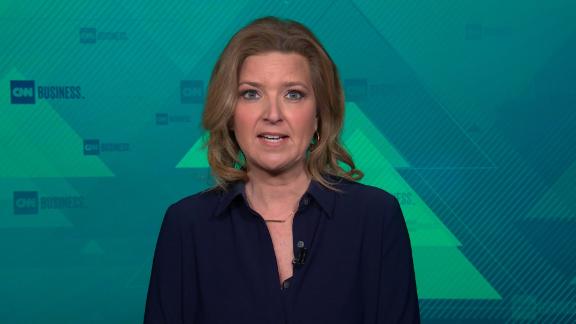Fed leaves rates at zero but will use its ‘full range of tools’ to help the economy

The Federal Reserve on Wednesday left interest rates unchanged near zero and said it would deploy its “full range of tools” to support the US economy as the coronavirus pandemic continues to wreak havoc on the US economy.
“The coronavirus outbreak is causing tremendous human and economic hardship across the United States and around the world,” the committee said in a statement. “The virus and the measures taken to protect public health are inducing sharp declines in economic activity and a surge in job losses.”
Policymakers agreed following their two-day meeting in Washington to maintain interest rates in the range of zero to 0.25%, as they continued to see signs of a badly damaged economy.
Earlier Wednesday, a preliminary first-quarter GDP report showed the economy contracted by 4.8% between January and March, its worst performance since the final quarter of 2008.
The central banks slashed rates in March to prevent an even worse economic fallout from the coronavirus crisis. In addition to cutting rates, the central bank unleashed billions of dollars into the economy to provide liquidity for various lending markets, including the municipal bond market in which states borrow money.
The central bank said it will also continue to purchase Treasury securities and residential and commercial mortgage-backed securities to keep those markets liquid and functioning. And the Fed will continue to offer large-scale repurchase agreements to keep the crucial overnight lending market from collapsing.
Fed Chairman Jerome Powell, as well as several other Fed board members, have spoken out against dropping rates into negative territory, as some other central banks have done.
“Currently the Fed is essentially pushing harder on the same old levers. We know from the financial crisis that those levers aren’t enough to bring about the sustainable growth, inflation and higher rates that everyone wants,” said James McCann, senior global economist at Aberdeen Standard Investments.
But the central bank needs to be bolder instead of resting on its laurels, and increase the scale and scope of its credit easing measures, McCann said.
–This is a developing story. It will be updated
